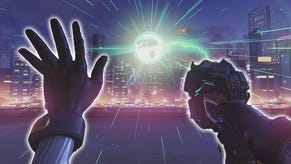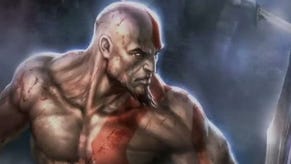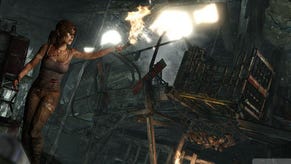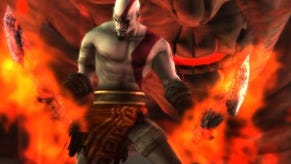God of War: Chains of Olympus
Link to the past.
If only more developers treated the PSP with such respect. With God of War: Chains of Olympus, Ready At Dawn manages not only to produce a showcase title for the much and unfairly maligned platform, but one that fans of the acclaimed PS2 hackandslash series will slice off limbs to get at.
Set ten years before the events of the original God of War, Chains of Olympus sees Kratos having yet another bad day. To begin with, it's all fairly innocuous god-bidding fodder, with the surly bald warrior defending a Persian city from an invading army. Soon enough, he comes across a statue of Athena, who sends him off on a typically violent quest via the usual collection of huge caves, ornate temples and even Hades itself to retrieve Helios, for reasons too absurd to go into. Eventually, our hero faces one of those galling moral dilemmas that game developers love (no wonder Kratos was so irrepressibly grumpy in the first place), and we're given the perfect excuse to hammer buttons and add to his growing collection of spare body parts.
As hard as it might be to imagine, Chains of Olympus comes incredibly close to replicating what made the PS2 originals so exciting - both in terms of the visuals and gameplay. Technically, it's one of the most impressive games to appear on PSP, capturing its predecessors' architectural and environmental opulence with ease - and all without any slowdown or loading pauses to rile us.
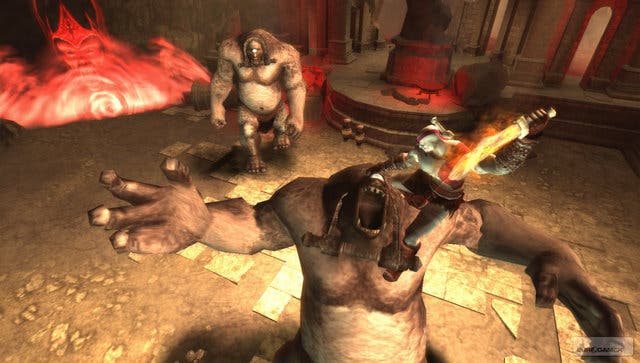
In combat terms, the controls are mapped identically bar the evade move - which is now somewhat awkwardly moved from the right stick to a combo requiring both shoulder buttons plus movement direction (this, it must be noted, isn't really a problem once you get used to it). Elsewhere, the well-established system of triangle for heavy attack, square for light attack, circle for grab and X for jump remains, and provides for simple, accessible and satisfying combat, as ever. The fact that the original never featured a manual camera is a godsend for its transition to PSP - for once, we're not left bitching about an inability to see what's going on. Happy accident or not, it means you're able to control the game almost exactly as was intended.
Weapon-wise, you get a few new toys to play with as you go along in the usual fashion. To add to the default blades of chaos, you soon add the ever-useful Efreet magic ability, which damages enemies within a given radius, followed closely by the Gauntlet of Zeus, which essentially gives you the ability to punch very very hard indeed. On top of that you also gain a sun shield, which is useful for deflecting projectiles, and a couple of other magic abilities - the Light of Dawn (chuck a ball of light), and Charon's Wrath (don a mask and dish out wracking pain from a distance). As ever, each downed enemy releases coloured orbs - red for powering up weapons and magic, blue for magic, and green for health - while occasional chests en-route also help improve your overall health and magic, just as they did in the PS2 parent titles.
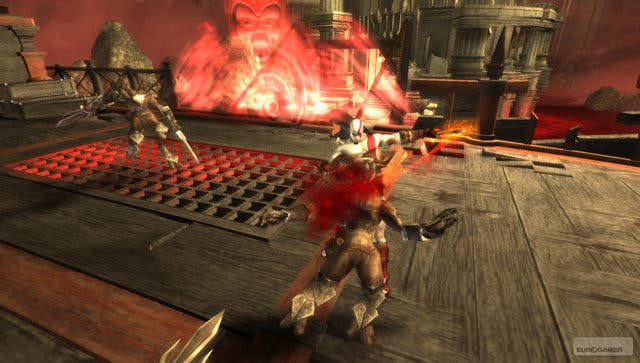
For all its faithfulness, though, it's not quite a full God of War game. It relies on short, sharp, repetitive combat encounters over and above exploration and puzzles, and there are far fewer enemies to fight or massive, screen-filling bosses to worry about. It feels lightweight next to the originals - and the presence of extremely regular checkpoints and save points is further evidence of this. It's probably a decision taken to make it work better on the move, but at the same time the feeling that this is God of War Lite grows the further you get into it. And with the game clocking in at six or seven hours, it's roughly half the length of either of the PS2 games. That Ready At Dawn, for whatever reason, had to cut co-op play, multiplayer, some of the puzzles, dialogue and characters, is a shame.
At face value, it's obvious that Chains of Olympus gets things absolutely spot on in terms of look and feel, and it's quite an incredible achievement in all manner of ways: the absence of loading times, the excellent controls, and the slick visuals contribute to it being one of the best examples of how to make a game for the PSP. It's not quite the full God of War experience, but none of this detracts too significantly from a game that is well worth buying despite its compromises.


